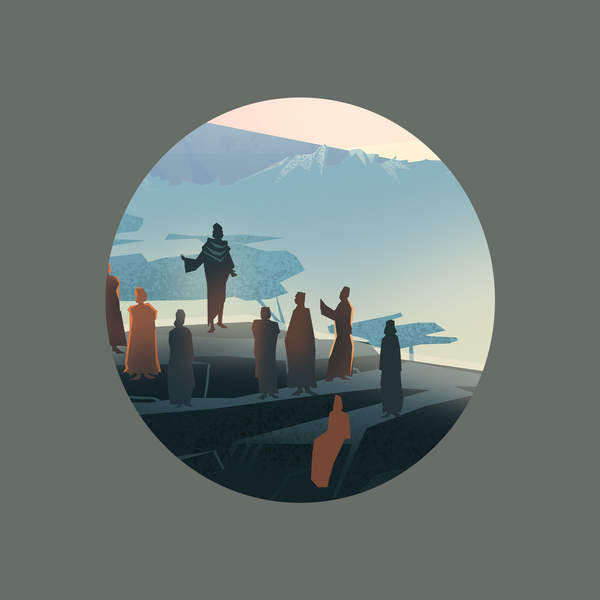
Co-Ruling With Jesus
God's Kingdom is introduced to us in Genesis 1 but then something goes wrong. We discuss how the Bible describes the conflict of the Kingdom of the world and the Kingdom of God and God's plan to fix it.
Episode Chapters
Show Notes
In this episode, Tim and Jon discuss Jesus’ authority over Heaven and Earth and what it means for humans to rule with Jesus. The guys talk about what it will be like for God’s Kingdom to be fully realized. The Bible tells us that God’s Kingdom arrived in Jesus, but the fullness of that Kingdom is yet to come. What went wrong with the establishment of God’s Kingdom, and how does he plan to fix it? In the first part of the episode (01:22-13:20), Tim and Jon talk about Jesus as the one who has authority over heaven and earth. What does this mean exactly, and how are humans invited into this with Jesus? In the next part of the episode (13:40-17:29), the guys talk about the New Jerusalem that’s introduced in Revelation 22:1-5. This is a key passage in understanding how humans will serve and reign with Jesus in God’s Kingdom. In the next part of the episode (18:02-23:22), the guys look at how God responds to humans setting up their own kingdoms. In the book of Genesis, we see that humans keep getting in the way of God’s plan. God’s covenant promise with Abraham and the children of Israel was all about trying to correct what went wrong with God establishing his Kingdom on earth. In the final part of the episode (23:45-43:37), Tim and Jon talk about Israel’s many rebellions––their rejection of God’s Kingdom and the creation of their own kingdoms. They take a look at God as King and how he challenges human kingdoms throughout the Bible. Finally, the guys talk about the tension between God being a King now but also one who will bring his Kingdom later. This is the “now and not yet” theology of the Kingdom of God. Video: This episode is designed to accompany our video called, “Gospel of the Kingdom." You can view it on our youtube channel here: https://www.youtube.com/watch?v=xmFPS0f-kzs Scripture References: Revelation 22, Genesis 3, Exodus 15, Deuteronomy 17, Psalm 96, Isaiah 52
Scripture References
Referenced Resources
Interested in learning more? Check out Tim's library for a list of recommended books and other resources.
Get the BibleProject app for access to our entire library of resources in one place.